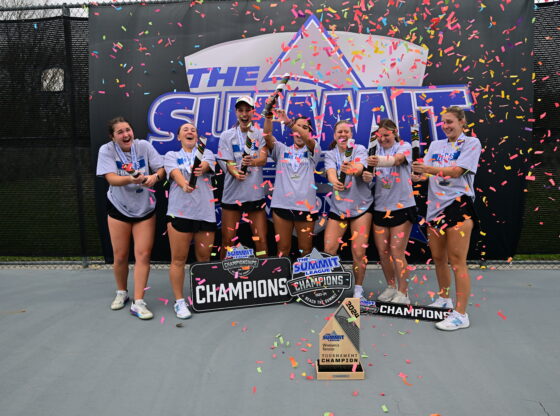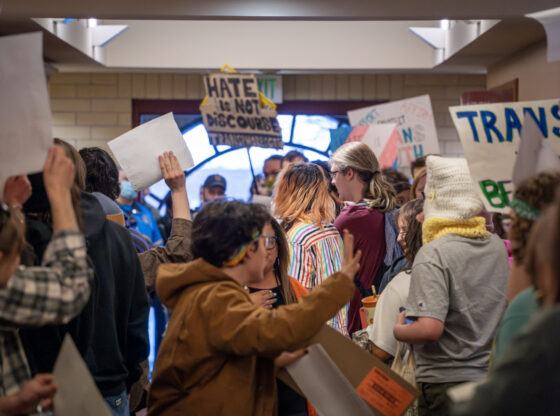Neurodiverse and disabled students face a predicament that could be remedied with understanding and a willingness to work outside of the box. They only wish that their professors would realize this.
The Office of Diversity, Equity and Inclusion’s (ODEI) fifth week of programming recently came to a close, signifying the end of the organization’s Critical Conversations series. The webinars, of which the recordings are soon to be released or are already posted on YouTube, addressed the perspectives of myriad identities—including race, ethnicity and sexual orientation—over the course of two weeks.
The first week of the series focused on conversations of race and ethnicity. Marginalized communities, including Black, Indigenous, Latinx and Asian-American panelists, shared their perspectives. Moving into the fifth week, folks from LGBTQ+, secular and neurodiverse communities among others received the stage.
Tuesday’s panel brought several students with perspectives on neurodiversity and disability together. It was moderated by the Director of the Learning Effectiveness Program (LEP), Scott van Loo.
The program has been on DU’s campus since 1982, nearing its 40-year anniversary, and has the accolades to uphold its maturity. Following a four-facet approach: self-advocacy, self-determination, self-awareness and accountability. Combined with weekly tutoring and counseling for students, DU’s disability program is highly regarded, often landing comparatively high when ranked against the programs of other universities.
The webinar began by explaining a type of diversity that too often goes unrecognized: neurodiversity. The term is “all-inclusive,” as explained by van Loo. There are more than 1,200+ students registered in the Disability Service Program, over a fifth of DU’s entire undergraduate enrollment, but neurodiversity is not restrictive to those students alone.
Neurodiversity works in degrees. No two brains are the same, so every single person falls somewhere along the spectrum of neurodiversity. A “Now This” op-ed provides context, explaining that brains that do not fall into what society considers neurotypical should not be considered disordered. There are harmful implications to the idea that there is something out of ‘order’ in the first place.
The video explains that neurodiversity is thought to be a natural evolutionary phenomenon. Science tells us that neurological differences can be traced back to advantageous traits, extending an individual’s skill in a specific area. Nothing is wrong; different traits are accentuated.
Six panelists—all DU students of varying age, year and neurodivergency—were first asked to share both positive and negative experiences in college brought about by their respective accommodations.
Maggie Tisher, a bright first-year student, started off by explaining that the good and bad are inseparable.
“There are some professors that really make an effort to incorporate my accommodations into the classroom, which really helps,” said Tisher. “Sometimes, it feels like you have to ask over and over and over again, and it gets a little tiring.”
In cases like the latter, it is hard for neurodivergent students to tell if the professor is being ignorant or actively avoiding the accommodations which these students require. Tisher described one of these cases where her professor ignored or refused to allow her extended time or the assistance of a note-taker, forcing her to eventually drop the class.
“I’m an overachiever, but for the first time in my life I was failing a class, and I didn’t know what to do.”
This type of misunderstanding between student and professor became a theme of the webinar. Many of the panelists recounted stories of their own struggles to not only have their accommodations met but be understood beyond a surface level as well.
“[What is important] is following some logic to realize that I am not going to be able to get as much done as some people in the class in the same amount of time as them,” said third-year psychology major Chyna Tillman, who has been diagnosed with chronic migraines and anxiety disorders.
The trouble for neurodivergent students receiving ADA-mandated accommodations is that more often than not, the professor refrains from yielding more than what is explicitly outlined. Some students fear that the line between want and need is muddled, creating this bare-minimum practice.
“I promise you [that] I don’t want to take triple the time on a test as everyone else. I would much rather take the normal amount of time and call it a day,” said Tisher, calling on professors to recognize that accommodations are not a matter of want, but a matter of need.
Even still, accommodations that are clearly outlined in DU’s policy and legally required are sometimes not met. Many of the panelists recall waiting weeks before finding a note-taker. The $40 DU bookstore credit reward for a peer note-taker appears to lack incentive. In an extreme case, a volunteer came forth in the eighth week of the quarter.
Despite all of this, most of the panelists maintain that DU’s LEP is phenomenal. Alex Welch, a first-year autistic person, and Gabbie Berger, a third-year with ADD and social anxiety, both asserted that LEP was instrumental in their choice to attend DU. Michael Adler, a fourth-year with a disability in written and oral expression, names his counselor as an essential figure who ensures he receives the accommodations he needs.
All of the panelists are hard-working, academically-driven individuals. Their resounding message is one of independence, one that unanimously feels: “Just because the work is produced in an unfamiliar way, it does not make the work less valuable.”
In the end, as Tillman eloquently phrased it, “what it boils down to is grace.” These students are tasked with operating in an environment that is constantly at odds with the neurodiverse and disabled. From their professors, they ask for a little grace and understanding to help manage the uphill battle.
Tillman brought the conversation to a close with a simple plea for human decency: “This is our struggle. It’s not a reflection of who [the professor is], and it doesn’t say that you’re a bad professor or your class isn’t worth our time. This is a struggle we live with every day.”











